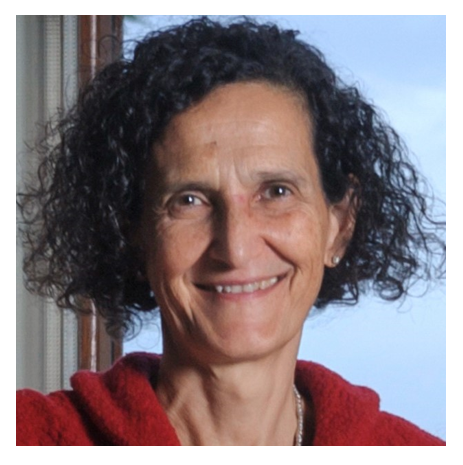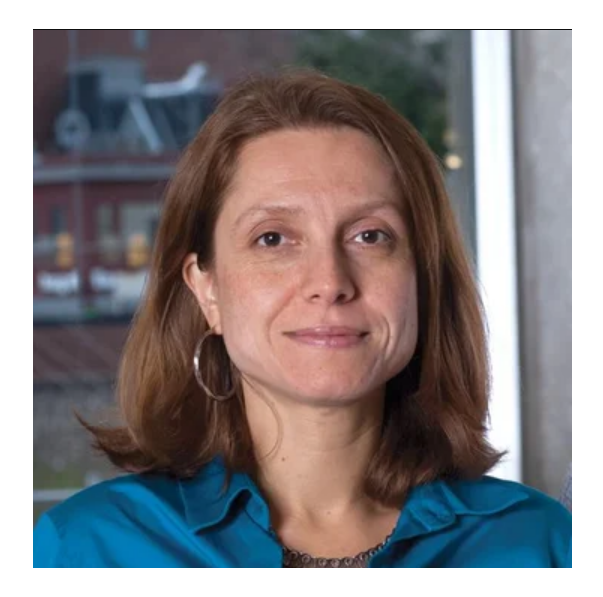Engineering Ethical-aware Autonomous Systems |
|

|
Abstract: The advance of data consuming and autonomous technologies in the society has challenged the relationship between digital systems and human being. This has put forward the urgency of designing system that act ethically when interacting with, or on behalf of, humans (either collectively or individually). In this talk I will discuss different concerns of ethical requirements and I will show that many of them, if not all, can be addressed and have implications at the system architecture level. Paola InverardiRector, Gran Sasso Science Insitute (GSSI), L'Aquila, ItalyPaola Inverardi is Rector of Gran Sasso Science Institute since September 2022. Before she was professor of Computer Science at University of L’Aquila. She was Rector of University of L’Aquila from October 2013 to September 2019. Paola Inverardi's research area is in the application of rigorous methods to software production in order to improve software quality. In the last decades her research interests concentrated in the field of software architectures, mobile applications and adaptive and autonomous systems. As for the latter her research focusses on ethics of autonomous system with reference to systems’ interactions with society and human beings. Inverardi served in the editorial boards of IEEE, ACM, Springer and Elsevier Journals. She has been general chair or program chair of leading conferences in software engineering (e.g. ASE, ICSE, ESEC/FSE) and chair of the ICSE and ESEC Steering Committees. She has been member of the ACM Europe Council and she is member of the ACM Tech Policy Council and vice-chair of ACM EUTPC. She is member of Academia Europaea, ACM Fellow and IFIP Fellow. She is the Italian representative in the European JU Eurohpc Governing Board. Paola Inverardi is member of the Scientific Council of the National Research Council (CNR) and of the scientific advisory board of IN3 - Internet Interdisciplinary Institute of UOC (Universitat Oberta de Catalunya). She has received a Honorary Doctorate at Mälardalen University Sweden and a Honorary doctorate at Shibaura University, Tokyo Japan, she has received the 2013 IEEE TCSE Distinguished Service Award. |
Beyond Automation: Human-AI Partnership and Redefining Roles in Software Architecture |
|

|
Abstract: With generative AI-based tools gaining momentum, software engineers must consider how future systems will be designed, deployed, and maintained with these tools taking on a greater role. The analysis of developer data to date reveals that although generative AI tools offer numerous advantages, they will necessitate intentional collaboration with human experts. Currently, these tools operate within a constrained context window and provide recommendations within a limited scope. Nevertheless, these recommendations carry implications for the broader structure and behavior of systems, specifically in terms of how the system is architected. Several questions remain unanswered: How can relevant changes be uniformly applied throughout the code base? How can developers identify changes that shouldn't be propagated? How can tools and humans ensure that similar looking but distinct changes aren't mistakenly propagated? What are the implications of these changes for the overall end-to-end system quality? Are these questions even the most relevant ones to ask? Thus far, there has been limited focus on exploring the impact of generative AI tools on software architecture workflows and resulting system design and quality. While the success of these tools offers exciting opportunities, I argue that it also places significant responsibility on the shoulders of software architects. In this rapidly evolving landscape of software engineering, the rise of generative AI tools challenges us to reconsider not only how we build systems, but also our fundamental assumptions about software architects’ roles and responsibilities, the architecting process, its essential workflows, as well as the inputs and outputs of this process. In this talk, I will encourage software architecture researchers and practitioners alike to embrace the responsibility of understanding and challenging the foundations of software architecture principles and practices to catalyze purposeful and constructive transformation! Ipek OzkayaTechnical Director, Software Engineering Institute, Carnegie Mellon University, USADr. Ipek Ozkaya is a Principal Researcher and the Technical Director of the Engineering Intelligent Software Systems group at the Software Engineering Institute (SEI) at Carnegie Mellon University. Her areas work includes software architecture, software design automation, and managing technical debt to improve development and runtime quality of software-reliant and AI-enabled systems. At the SEI, she has worked with several government and industry organizations in domains including avionics, power and automation, Internet of Things (IoT), healthcare, and information technology (IT). Ozkaya is the co-author of a practitioner book titled, Managing Technical Debt Reducing Friction in Software. |
Demystifying Hypes in Cloud-Native Architectures |
|
 |
Abstract: The rapid evolution of cloud-native technologies has transformed software development practices. However, while certain innovations offer substantial benefits, others may pose challenges or have adverse effects depending on the context. This keynote aims to bridge the gap between academia and industry by demystifying the current hypes surrounding cloud-native technologies. We will explore how empirical research can inform practical applications, ensuring that new advancements are leveraged effectively and responsibly. Join us to gain insights into the nuanced impacts of these technologies and learn how to navigate the ever-changing landscape of cloud-native systems. Davide TaibiProfessor at the University of Oulu in FinlandDavide Taibi is a full Professor at the University of Oulu in Finland, where he leads the M3S Cloud research group. His research focuses on Empirical Software Engineering with a particular emphasis on cloud-native systems and the migration from monolithic to cloud-native applications. He is dedicated to investigating processes and techniques for developing cloud-native applications, identifying specific patterns and anti-patterns, and supporting companies in their transition to cloud-native technologies. His work bridges the gap between theoretical research and practical industry applications, contributing to the advancement of cloud-native systems. |